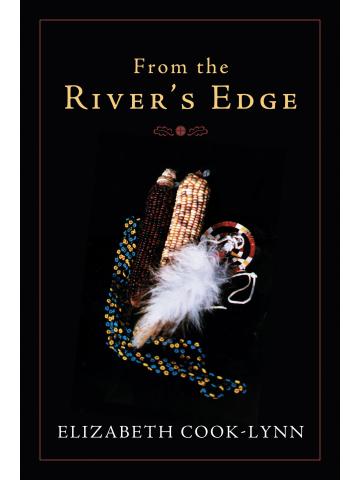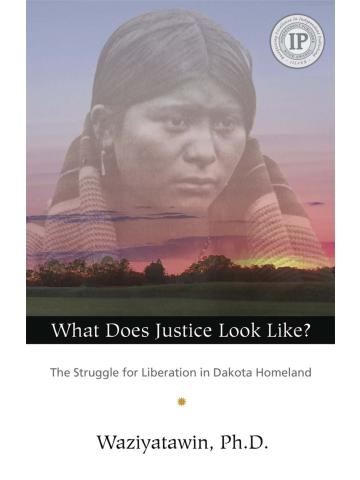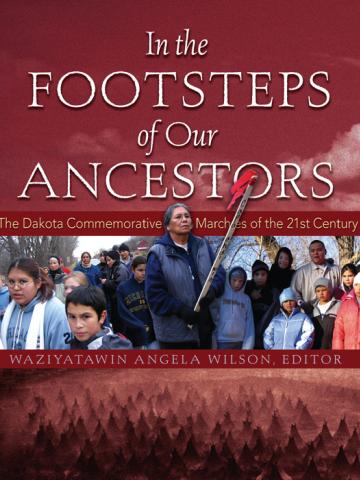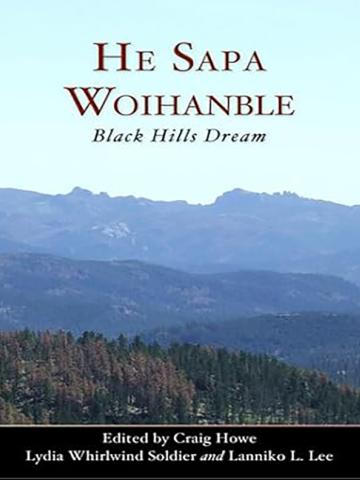
*****IF YOU WISH TO ORDER HARD COPIES OF OUR BOOKS, PLEASE VISIT https://livingjusticepress.org*****
He Sapa Woihanble: Black Hills Dream presents compelling views of the Black Hills from 23 Lakota, Dakota, and Nakota poets, scholars, and essayists. They speak of the beauty and power of their land, as well as the painful history of its theft and exploitation by the United States. The Oak Lake Writers' Society is one of the few writers' societies of a Native nation. An invaluable addition to many high school and college courses, He Sapa Woihanble presents a range of views on a history that many students are keen to learn.
He Sapa Woihanble is a collection of writings by members of the Oak Lake Writers' Society, a state-wide organization of Lakota, Dakota, and Nakota writers. In it, the writers express through eloquent prose, poetry, and personal stories their profound spiritual relationships to He Sapa, the land known to many as the Black Hills of South Dakota. They speak of the beauty and power of that land, as well as the painful history of its appropriation by the United States. The Oak Lake Writer's Society is an outgrowth of the summer retreats for aspiring tribal writers that have taken place at South Dakota State University’s Oak Lake Field Station since 1993. The primary goal of the Society is to contribute to the strengthening and preservation of Lakota, Dakota, and Nakota cultures through the development of culture-based writings. "The vision of this book, its dream, its woihanble, is to present Native perspectives on He Sapa, the spiritual center and homeland of the Oceti Sakowin, the Seven Council Fires people. The Oceti Sakowin people, collectively but incorrectly referred to as “Sioux,” are comprised of three major subdivisions: Lakotas, Nakotas, and Dakotas. He Sapa refers to a breathtakingly beautiful ecosystem of pine-covered hills, steep-walled rock canyons, countless caves, and meandering meadows that rise out of the northern Plains like an ocean island. In the Lakota language, “he” means a ridge of mountains, and “sapa” means black. From a distance, the blue and gray haze and the dark dense green colors of the pines and cedars shift subtly and settle deeply into black, thus the name. Today this area is known in English as the Black Hills of South Dakota. . . . "Our hope now is that this volume will contribute to an increased understanding of the shared histories of all citizens of South Dakota, as well as the shared histories of all the peoples and nations who know and love the Black Hills. This dream is our He Sapa Woihanble." - From the Introduction by Craig Howe and Lydia Whirlwind Soldier
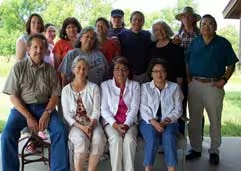
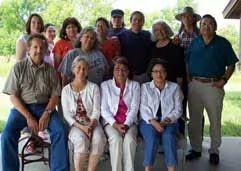
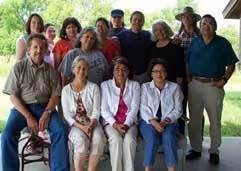
Praise for He Sapa Woihanble
Susan Power
Author of The Grass Dancer and Roofwalker
"The voices of He Sapa Woihanble are a diverse and powerful chorus, offering critical testimony on one of America's most iconic sites. These authors chart an enduring relationship with sacred ground and remind us of our kinship to this exploited territory. Through oral histories, poems, legal documents, and scholarship, these voices swell with urgent grace until I am convinced the Black Hills themselves are singing."


